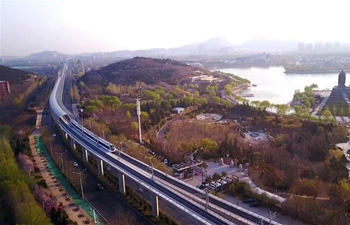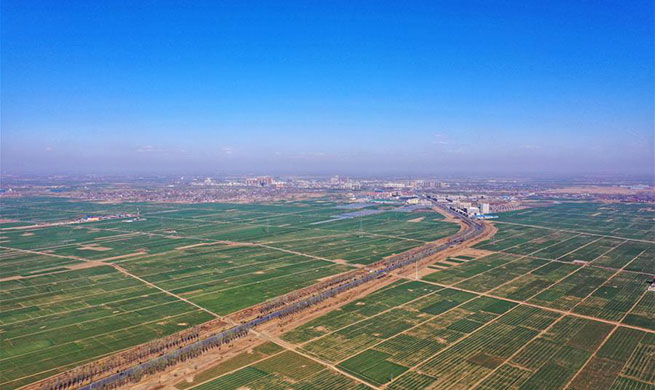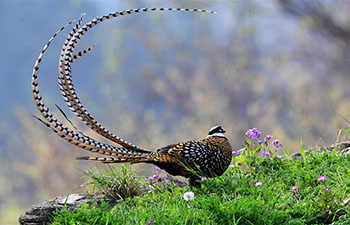KUNMING, April 2 (Xinhua) -- A hydropower plant in southwest China's Yunnan Province changed its water discharge plan to protect the brooding habitat for River Terns, a type of protected bird in China.
The Hulukou hydro-power plant on the Dayingjiang River, an upstream tributary of the Irrawaddy River, started to discharge water from March 26 to April 1 to make room for maintenance and repair.
Four days before it began discharging water, nature photographer Cun Zhiyong got worried. The discharge was estimated to be three million cubic meters, which was to substantially elevate the water level.
"This means that the brood habitats of River Terns might become flooded," said Cun, 58.
The River Tern, mainly found along inland rivers in India, Myanmar and Thailand, has seen drastic population decline in southeast Asia. Listed as a second-grade state-protection in China, the birds mainly breed along the Dayingjiang River in Yingjiang County on the China-Myanmar border.
In 2014, 13 River Terns were spotted in Yingjiang but only five were observed in 2018. Last month, an investigation team sent by the county government and the Kadoorie Conservation China recorded seven birds and found a breeding nest.
"River Terns have beautiful posture, and they fly pretty fast. When I started bird photography, I improved my skills by following and taking pictures of the River Terns," said Cun.
The River Terns breed from March to May every year and often nest on bare rocks or sandbanks in rivers. The sudden rise of river water levels or other disturbances including harvesting of the eggs and destruction of the nests by humans and domestic animals threaten its incubation.
"It will be a great loss if its population continues to decline," said Cun, who shared the warning in a WeChat group with government officials, bird photographers and conservation volunteers.
His message caught the attention of Yang Zhenghua, deputy director of the Bureau of Forestry and Grassland of Dehong Dai and Jingpo Autonomous Prefecture which administers Yingjiang. Yang then arranged for officials to contact the Hulukou hydro-power plant, and he personally followed the issue.
Nature reserve workers were sent to monitor the water level around three bird nests and kept human and domestic animals away from the nests, said Zuo Changsheng, deputy director of the Yingjiang sub-office of the Tongbiguan Nature Reserve.
They also changed the water release plan to make sure that the water level is below the nests and the incubation is undisturbed, Zuo told Xinhua on Monday.
The change of plan led water to accumulate in front of the dam, deforming the gate. "It will cost us at least 50,000 yuan (7,400 U.S. dollars) to repair the gate, but we would like to take the necessary actions to protect the rare birds," said Dong Jun, general manager of the plant.
The hydropower plant generates around 90 million watts of electricity every year.
















